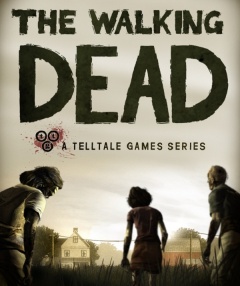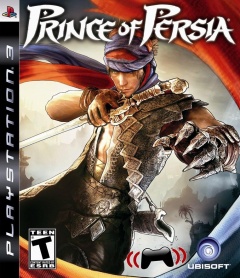osx
Skyward Collapse
What does it mean to be a god if no one will listen to you? Arcen Games looks at this with a bit of humor in their latest release, Skyward Collapse. Here, we play an omniscient, omnipresent celestial being, tasked with cultivating and manipulating two factions that would like nothing more than to see the other eradicated. That's an interesting scenario on its own, but we are further entangled by a godly need for entertainment (conflict) and plagued by natural "woes." To further jumble our troubles, rogue elements including deities and mythological creatures try to spoil our day. In this turn based strategy/god sim, we inherit the intriguing situation of lacking direct control yet commanding plenty of manipulation.
Counter-Strike: Global Offensive
It's been a long while since I've written a review, which is pretty commonplace due to my busy schedule. But as my days have cleared up due to seriously inclement weather, I figured I'd write a review. Not just a review, but a review on a game in a series that I am in love with. This is something I had been saving and looking forward to for the right time.
Unfortunately though, this didn't pan out like I had hoped. This is hard for me to write. Not just because of the fact it's a multiplayer experience I'm reviewing, but also because it's a dream of mine being crushed.
As I've mentioned before, I was a pretty avid player of Counter Strike, and much more so, Counter Strike: Source. My father and I played CS: Source from around 2005 until 2007. We were in a clan, competitively. (The name of it was Exemplar Sect, best player was Pug.) Anyway, we loved that game, and I remember upgrading computer parts all of the time to increase framerates, and every weekend was a Mountain Dew fueled weekend of meeting people all over the world and killing them. But then other games became popular (I played Battlefield: Bad Company 2 quite a bit.) and I went over to them, but I always visited CS: Source, and always had a blast.
Deus Ex: Human Revolution
My writing pace has slowed to a halt the last month. I might have burned myself out a bit at the end of 2012, and the new year has allowed me to erase any kind of guidelines or deadlines I was imposing on myself. With Nate and the other writers’ help, I always tried to publish three times a week, but I’ll be honest and say it’s just not in me like it used to be. Maybe it’s temporary, it probably is, but for now, I don’t mind taking it a bit easier. This is my hobby after all.
And most of that time not spent writing has gone into video games! Yeah, those! (Also reading, a lot of reading.) Maybe I’ll declare 2013 the year of the catch up, even though 80% of the games I beat last year weren’t released last year as it is. But my backlog is huge and the only game I’m really interested in on the near horizon is Bioshock Infinite, so now’s as good as time as any.
As for Deus Ex: Human Revolution? It was a good game, problematic at times, but an experience worth putting at least a few hours into, and at about 24 hours long, probably worth finishing. I’m not sure how much I have to say about it that hasn’t already been said by our own Paul Abbamondi, let alone everyone else, so I’ll keep this short and to the point... starting now.
The Walking Dead: No Time Left
 The finale to the first episodic season of The Walking Dead has arrived, and after the shocking conclusion to the fourth episode, it was apparent just how No Time Left would end. Of course, getting there is never straightforward in The Walking Dead universe.
The finale to the first episodic season of The Walking Dead has arrived, and after the shocking conclusion to the fourth episode, it was apparent just how No Time Left would end. Of course, getting there is never straightforward in The Walking Dead universe.
This final review will be rather spoilerific after the cut, so there’s your first warning. It would be massively difficult to talk about the season as a whole without talking about the characters and their relationships, the real core to The Walking Dead. It’s funny: comparing it to my earlier episodic gaming experience, Tales of Monkey Island, and while I’m going to end up awarding them identical scores, it’s for completely different reasons and I feel totally different about each experience. My thoughts are also a lot more complicated when it comes to The Walking Dead.
So with that, let’s talk Lee, Clementine, and the end of the world.
The Walking Dead: Around Every Corner
 The penultimate episode of the first season of The Walking Dead brings our group of survivors to the edge with seemingly no hope for a happy ending. While I’ve certainly enjoyed the previous three episodes quite a bit, I feel like everything has finally clicked for me in Around Every Corner. There’s a great sense of dread, urgency, and horror as you progress, and it successfully caps off the previous three hours with a heart-stopping finale.
The penultimate episode of the first season of The Walking Dead brings our group of survivors to the edge with seemingly no hope for a happy ending. While I’ve certainly enjoyed the previous three episodes quite a bit, I feel like everything has finally clicked for me in Around Every Corner. There’s a great sense of dread, urgency, and horror as you progress, and it successfully caps off the previous three hours with a heart-stopping finale.
Telltale Games wouldn’t have been my first choice for a Walking Dead game, as a popular graphic novel and the most successful show on cable television, the intellectual property owners should have had their pick of the litter when shopping their game. Could Call of Duty: Black Ops II have sold even more with a fully licensed Walking Dead zombie mode? Should the Dead Island developers been tapped? Capcom for their Dead Rising experience? Valve with Left 4 Dead? EA for their gobs of money?
But Telltale’s interactive drama experiment has been a huge success, at least critically. There are bound to be more Walking Dead games in the future, but this will certainly set the bar high. Here’s my review of episode four: Around Every Corner.
Eufloria
 Originally known as Dyson during its prototype stage, Eufloria is self-described as a "space gardening RTS." What that means is not very clear without some description, but in essence, Eufloria is about growth and destruction. Building up your own spores of pollen to seed across the galaxy and wreack havoc on your enemies. Any tree not your color is marked for death and total domination is necessary for your own survival.
Originally known as Dyson during its prototype stage, Eufloria is self-described as a "space gardening RTS." What that means is not very clear without some description, but in essence, Eufloria is about growth and destruction. Building up your own spores of pollen to seed across the galaxy and wreack havoc on your enemies. Any tree not your color is marked for death and total domination is necessary for your own survival.
Well, that might sound cooler than it actually is, but Eufloria is our latest go-around at Indie Impressions. Developed by a trio of indie devs, Eufloria was released in 2009 for Windows and later released on Linux, OSX, iOS, Android, and PlayStation Network. Here is Steve and Greg's take on the game after playing a few hours.
The Walking Dead: Long Road Ahead
 If there’s something that Telltale Games teaches its Walking Dead players in Long Road Ahead, it is that everyone is expendable. While I don’t know if everyone’s experience was like mine, I lost four major characters over the course of the episode. Zombies are dangerous in the world of The Walking Dead, but humans are a lot worse. To quote one of the characters, “I don’t believe in strength in numbers.”
If there’s something that Telltale Games teaches its Walking Dead players in Long Road Ahead, it is that everyone is expendable. While I don’t know if everyone’s experience was like mine, I lost four major characters over the course of the episode. Zombies are dangerous in the world of The Walking Dead, but humans are a lot worse. To quote one of the characters, “I don’t believe in strength in numbers.”
I haven’t been quite as blown away by the episodes so far as the rest of the internet are, but I’ve certainly enjoyed them so far. The areas are generally small and there is little exploration or puzzle solving required. I’m reminded again of my original comparison of the game to Heavy Rain, but there was a greater sense of dread in Quantic Dream’s psychological epic than in this zombie-laden drama.
Long Road Ahead was released in late August and it was during this time that I was first exposed to the game through social channels, which is certainly not a surprise considering some of the hellish scenarios the episode puts its players through. While I feel episode three was an improvement over Starved for Help, I’m still looking for a bit more from the game than frantic quick time events.
The Walking Dead: Starved for Help
 I’m not any kind of expert on zombie apocalypse fiction, but from my point of view, there’s two crucial points in the story that every good zombie story needs, and needs to do well. The first is the tension build-up in Act 1. Everyone watching, reading, or playing some sort of zombie media knows there will be zombies. The ones who don’t know are the characters, the heroes whose lives are about to be torn apart by the undead. The more tension the author can build, the more satisfying and terrifying the reveal will be when hell is unleashed.
I’m not any kind of expert on zombie apocalypse fiction, but from my point of view, there’s two crucial points in the story that every good zombie story needs, and needs to do well. The first is the tension build-up in Act 1. Everyone watching, reading, or playing some sort of zombie media knows there will be zombies. The ones who don’t know are the characters, the heroes whose lives are about to be torn apart by the undead. The more tension the author can build, the more satisfying and terrifying the reveal will be when hell is unleashed.
The other crucial part of zombie fiction doesn’t involve the zombies at all, but human conflict. The zombie mythos rule of thumb says that the dead are never the true enemy in zombie fiction and that interesting drama lies in the living. This is true, but drama isn’t necessarily easy or obvious to write, so it’s not a given it’s executed well.
The Walking Dead already featured their tension build-up and zombie reveal in Episode 1: A New Day, but it still surprised me that Episode 2: Starved for Help almost immediately dropped running from zombies in favor of arguing with fellow survivors, but Telltale Games is apparently confident in their story, so let’s take a look.
The Walking Dead: A New Day
 Word of mouth is a powerful, but nearly impossible to control selling tool. Growing up, I rented SNES games based on friends’ recommendations; during college, PC games spread from computer to computer like viruses. But now that I’m an adult working full-time, the break room doesn’t satisfy the gaming suggestion mill. So where do I turn? Twitter.
Word of mouth is a powerful, but nearly impossible to control selling tool. Growing up, I rented SNES games based on friends’ recommendations; during college, PC games spread from computer to computer like viruses. But now that I’m an adult working full-time, the break room doesn’t satisfy the gaming suggestion mill. So where do I turn? Twitter.
Love it or hate it, your reaction to Twitter will be based entirely on the people you choose to follow, and I choose to follow a lot of people in the gaming industry. From developers to journalists, they all seem to be raving about The Walking Dead, Telltale Games’ newest episodic adventure for Windows, OSX, Xbox 360, PlayStation 3, and iOS devices.
Fresh off my completion of Tales of Monkey Island, also from Telltale, I was excited to try out something a bit newer, and The Walking Dead fits the bill perfectly, especially with today being Halloween! So here’s my review of Episode 1: A New Day, I will continue to review the other episodes in the coming weeks, as long as I survive!
Happy Halloween and happy gaming!
Prince of Persia
 The success of Prince of Persia: The Sands of Time completely rejuvenated a left for dead franchise. From a series that was known for its challenging, timed gameplay, rose a 3D incarnation that was nearly beloved by both the gaming press and gamers themselves. Setting the gears in motion for sequels, spinoffs, and a movie, The Sands of Time was both a trendsetter for many future titles and an acknowledgement to its roots.
The success of Prince of Persia: The Sands of Time completely rejuvenated a left for dead franchise. From a series that was known for its challenging, timed gameplay, rose a 3D incarnation that was nearly beloved by both the gaming press and gamers themselves. Setting the gears in motion for sequels, spinoffs, and a movie, The Sands of Time was both a trendsetter for many future titles and an acknowledgement to its roots.
A few years after its immediate trilogy sputtered off, Ubisoft tried to remake the prince once again with Prince of Persia, no subtitle. Much like the NES Ninja Gaiden and the Xbox Ninja Gaiden, Prince of Persia was annoyingly named the exact same as the original game twenty years its predecessor. But if fans were expecting an even closer imitation of the original, they would be quite surprised with the bigger changes made by Ubisoft.
Prince of Persia (2008, not 1989) received mixed reviews with attention to the excellent art and animation, but some disdain towards the game’s reported simple difficulty. What attracted me to reviewing the game’s first hour was definitely the art style. Borrowing the watercolor look from Okami was definitely a brave move by a generally conservative Ubisoft, and I am hoping some of that creativity might have run over to the parkour and fighting elements of the game. Let’s take a look.



